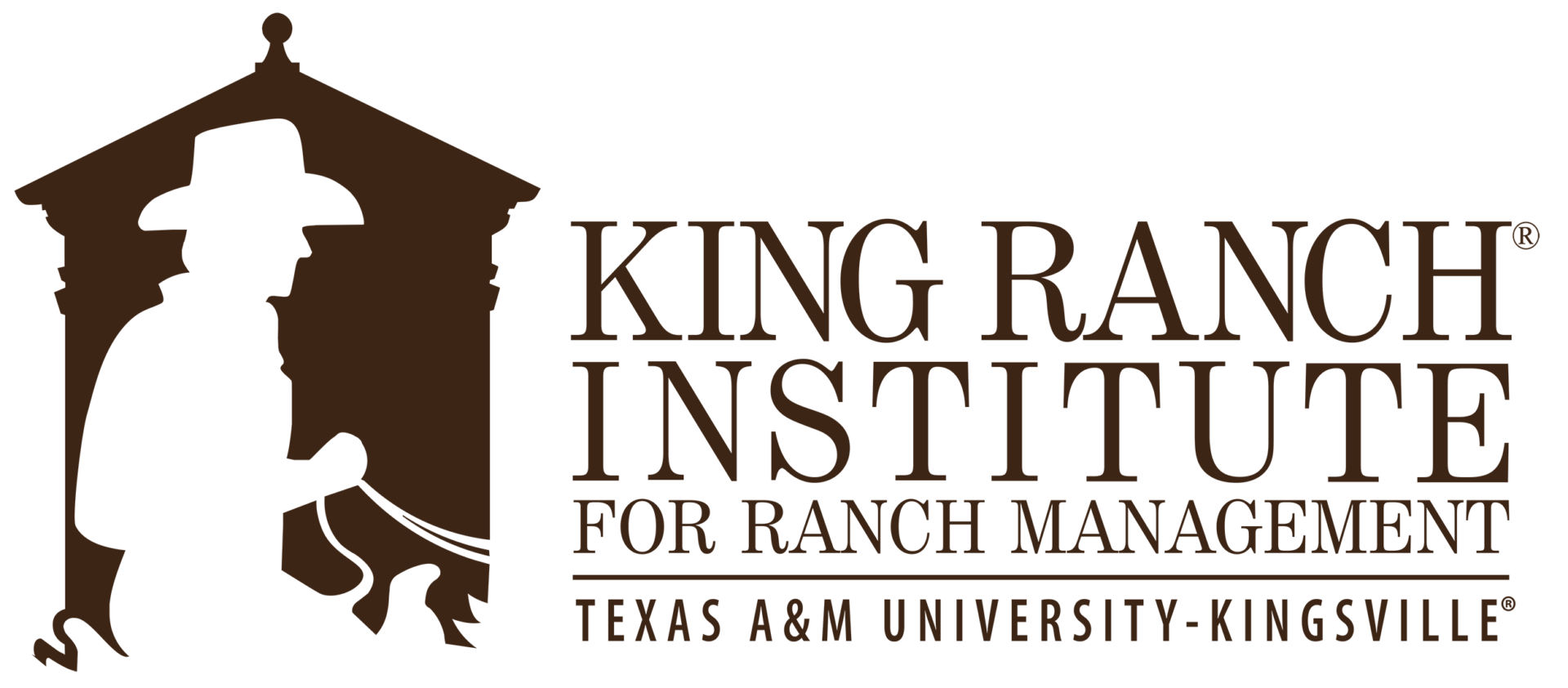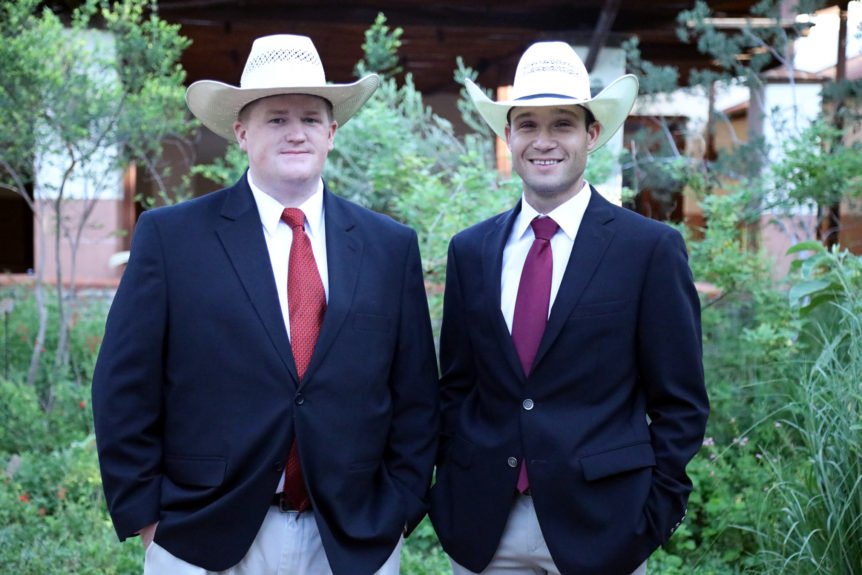Ranch management graduate students Zane Herrin and Tyler Gardner prepare for graduation in 2020 from the King Ranch® Institute for Ranch Management (KRIRM) master’s program, eagerly anticipating serving the ranching industry.
2020 Vision
Article by Kindra Gordon, appearing in KRIRM Winter 2020 Newsletter
With its unique repeating digits—and match-up to the 20/20 moniker for perfect vision—2020 is being considered a milestone year. For King Ranch® Institute for Ranch Management (KRIRM) students Zane Herrin and Tyler Gardner, it most certainly will be as they anticipate their May graduation from the program.
Their time in Kingsville has been filled with highlights and opportunities. Here, they each share what they’ve gained from their coursework and internship experiences.
Gardner, who was born and raised in Wyoming, and Herrin, a Texas native, have both dedicated the last two years to expanding their ranch knowledge, skills and connections through the KRIRM. Looking forward, the duo are eager to apply their skills within the cattle industry.
Financial Acumen
Both Herrin and Gardner say their favorite KRIRM courses have related to finances. Herrin counts managerial finance and managerial accounting among his most valuable experiences, and says, “Through both, I realized how much I enjoy financial analysis and making the numbers ‘say something.’”
Gardner credits the course in managerial finance for growing his skills. He tells, “Dr. Kim was an excellent teacher that truly wanted each student to grasp the concepts he was covering…This class is where my understanding of how to conduct a financial analysis really developed.”
Additionally, both men point to the opportunity to work with economist Stan Bevers as a highlight of their KRIRM experience. Bevers, who works as a practitioner in ranch economics alongside KRIRM faculty at Texas A&M University-Kingsville, teaches an in-depth ranch accounting and analysis workshop and works with students on follow-up accounting exercises and service-learning projects with partnering ranches.
One project paired Herrin and Gardner working on an analysis for the Merrill Ranch in southwest Kansas, which Doug Wilmeth, a KRIRM alumnus oversees. The analysis required projecting the financial outcomes of six different operating scenarios, based on historical cost and production metrics.
Gardner and Herrin also collaborated with three KRIRM students on a project for the King Ranch to assess financial analysis of a wildlife project looking at the difference in revenue on a combination of pastures with guided hunts vs. leasing the hunting rights of those pastures.
Furthermore, in the fall of 2019, Gardner and two first-year KRIRM students completed a project evaluating the cost of a rainfall data collection method comparing alternatives that would reduce cost without sacrificing accuracy. Meanwhile, Herrin and two first-year KRIRM students conducted a project performing a financial analysis of drought-induced management decisions for a ranch in south Texas over a three-year period.
Hands-On Opportunities
Expanded opportunities to engage with working ranches on real-world challenges have also been part of the KRIRM training for Herrin and Gardner.
Gardner put his financial skills to work while interning with Rollins Ranches in Okeechobee, Fla., working with Darrell White, a KRIRM alumnus. His responsibilities included completing three separate financial based projects relating to optimal stocking rate, bull development, and heifer development.
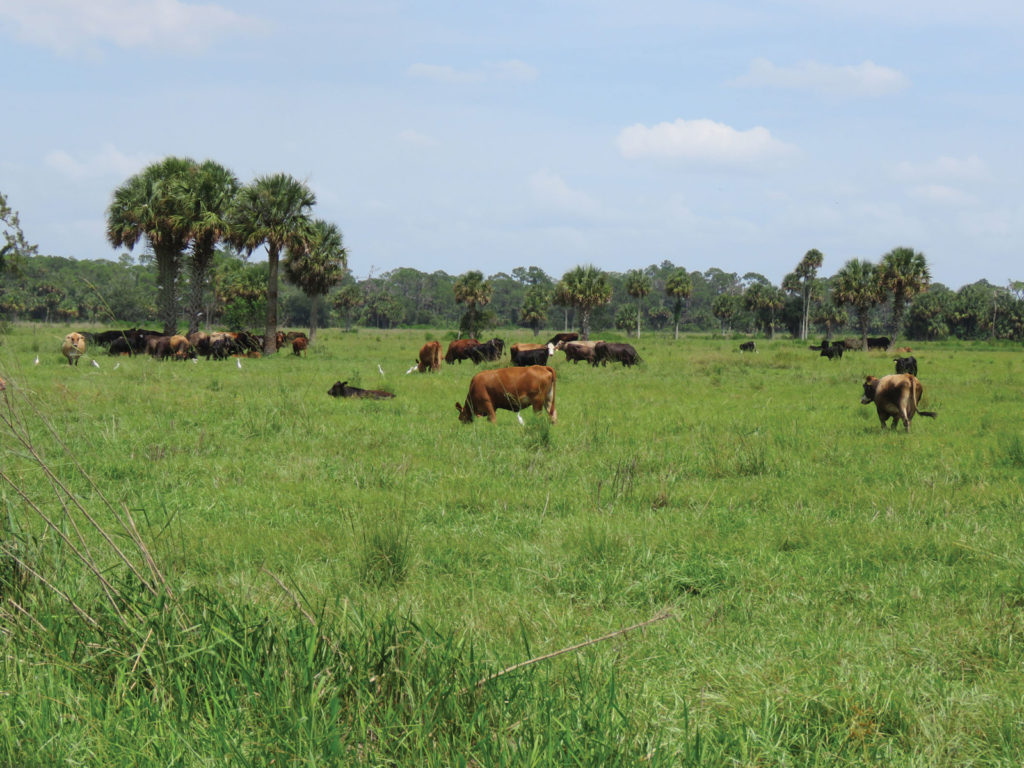
Currently, his final project is working with McCarty Ranching, LLC based in Cody, Wyo., evaluating the benefits and drawbacks that the introduction of crossbreeding may have in their purebred Black Angus cowherd.
Herrin completed an internship working with Ranchester, Wyoming-based Padlock Ranch, which operates in northern Wyoming and southern Montana. Working with president and CEO Trey Patterson and livestock manager JD Hill, Herrin was responsible for a human resources development project for the ranch. Elements of the project included developing a supervisor’s handbook, and creating, conducting, and analyzing an employee satisfaction survey.
Herrin’s final project includes working with Sooner Cattle Company of the AgReserves system evaluating their current cow replacement strategy.
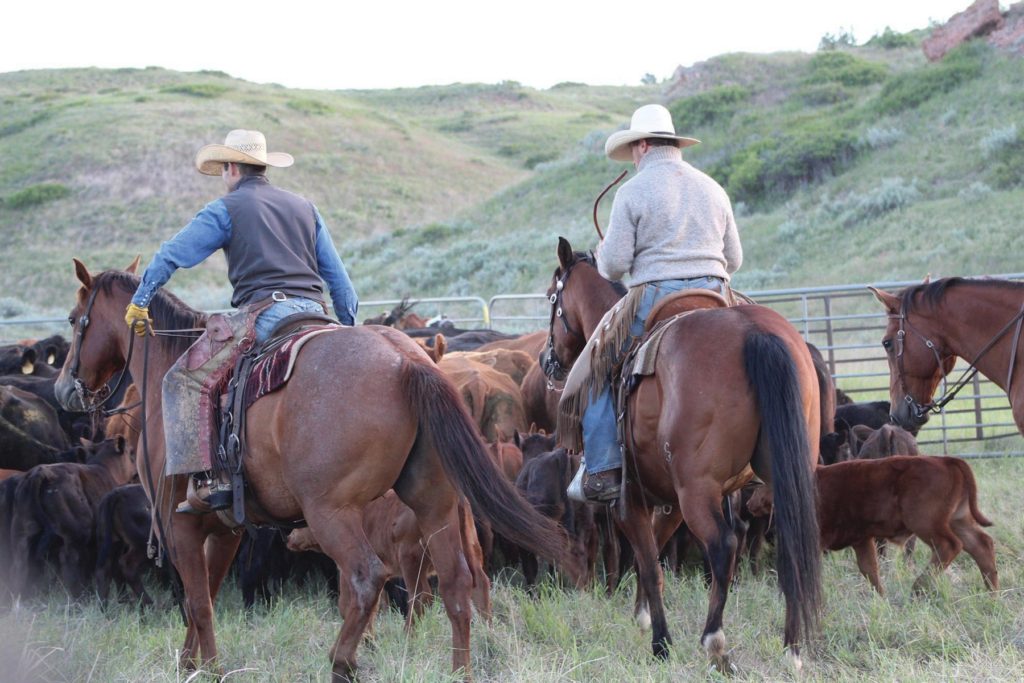
Insights Gained
Herrin says, “I have learned that in decision making or problem solving I won’t always have all the information I want or need, but my experience at KRIRM has given me the ability to critically think through complex issues. Our ranch projects gave us the platform to apply those skills so we can be more comfortable in the future.”
Gardner adds, “I have heard from several different ranch managers that you cannot successfully run a ranch strictly from a desk or strictly from the saddle; you have to have a combination of the two. Coming to the Institute has provided me with the tools to be able to do both.”
Additionally, Herrin says, “I have a better understanding of the concept of systems thinking and looking at issues or situations holistically, realizing that an action or decision may have indirect, delayed or even exponential effects that may not be easily recognized. Therefore, a decision can be considered from a broader perspective, accounting for all the variables involved.”
Gardner and Herrin have valued the networking opportunities afforded them while at KRIRM and recognize it as one of the best tools they’ll take with them in the future. They cite participating in Cattlemen’s College at the National Cattlemen’s Beef Association Convention (NCBA) and the Excellence in Ag Leadership Program coordinated through KRIRM and the NCBA as opportunities for growth as leaders and engagement with industry.
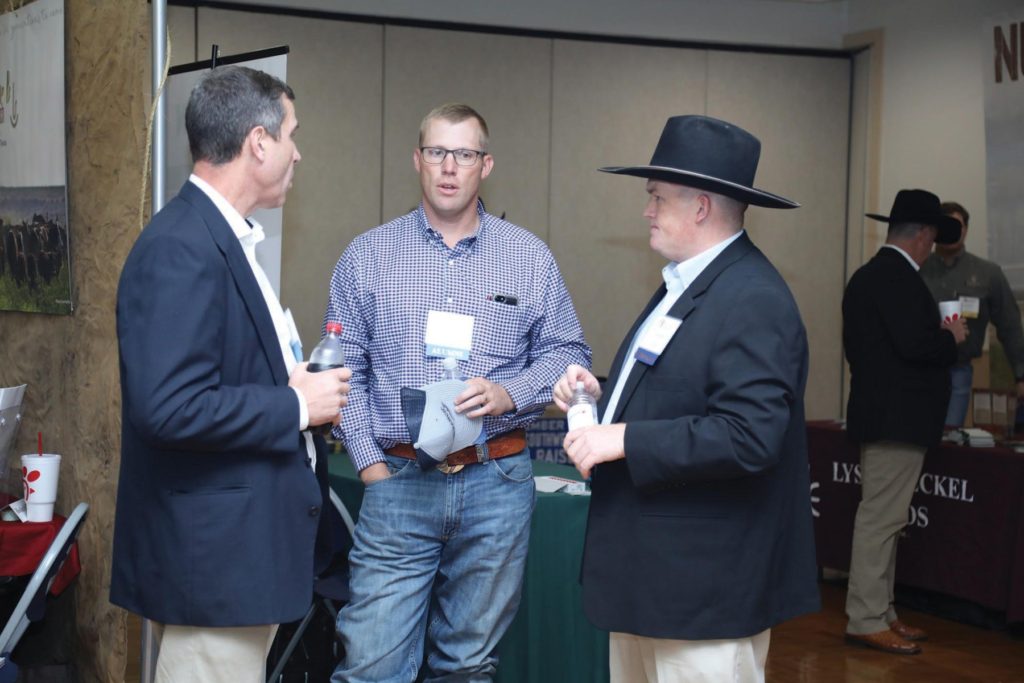
Meeting various ranchers, professors and industry leaders has paid dividends in expanding their networks. Gardner explains, “To be able to sit down with industry leaders and ask questions and gain insights on lessons they have learned and experiences they have had has been very beneficial.”
He adds, “Without question everyone will be faced with challenges or problems that they do not know the answer to or the best way to solve, but with a deep network of people that you can turn to for assistance, someone in that network knows the answer or knows where/how to find the answer. It goes back to the old saying ‘it is not what you know, but who you know.’”
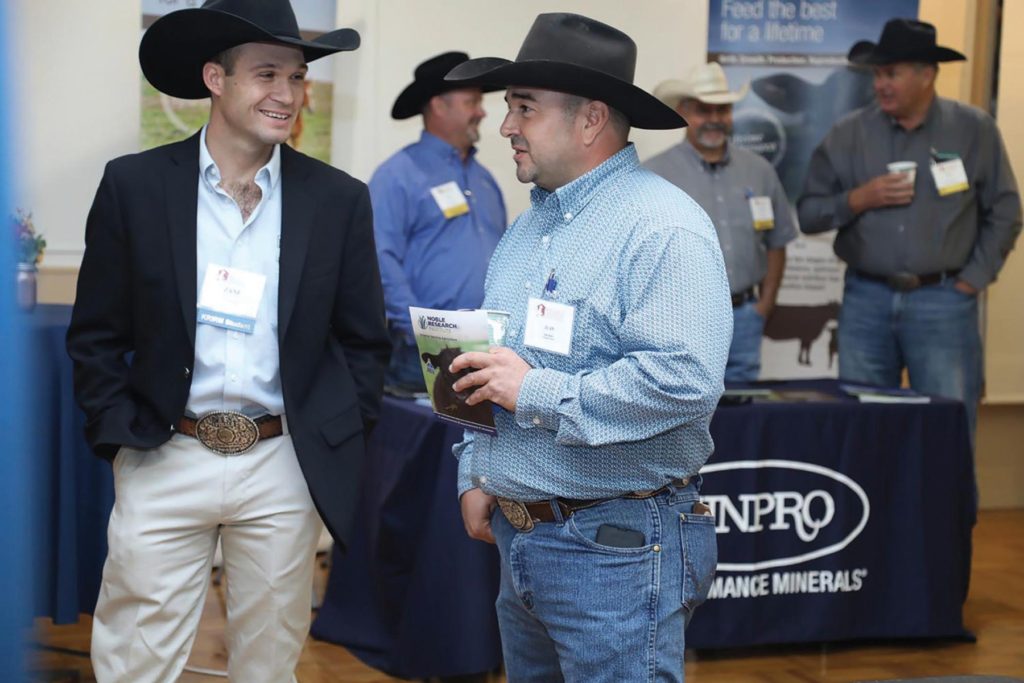
Post-graduation, Herrin and Gardner look forward to putting their experience to work within the beef industry. Herrin is interested in roles with the cow/calf or stocker sector and particularly a management role that might allow him and his wife to stay in Texas or the Southwest.
Gardner hopes to be part of an operation that has several moving parts and will allow him to apply the skills he’s developed at the Institute.
Both men say they’ll continue to be lifelong learners who strive to be involved – and improve – the industry. Gardner concludes, “I want to be part of an operation where I can continue to grow and learn while at the same time helping others to become leaders within the beef industry. I guess that is how I see giving back to the industry is through helping develop others.”
